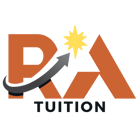The Busy Season is Over: Time for Your Other Assurance Hours
The whirlwind of the busy season has finally come to an end—congratulations on making it through! Now is the perfect time to tackle the other assurance hours required for your RA traineeship. Late spring and summer often present unique opportunities to engage in other meaningful projects that will enhance your skills as an auditor and give you a broader perspective on the business landscape. Let’s plan wisely to make the most of this moment!
3/22/20253 min read


1. Kick Off with a Clear Plan
a) Assess Your Current Hours Take a moment to review how many non-assurance hours you’ve already accumulated (you will need to complete 150 hours). Knowing where you stand will help you structure the coming months effectively.
b) Explore Available Projects Speak with your manager or training coordinator about ongoing or upcoming projects outside assurance. Examples could include:
Review engagements of financial (annual accounts) and non-financial (Tax Control Framework) disclosures and forward-looking information (e.g.: forecasts);
Special audits (e.g.: Subsidy statements);
Other specific data reviews (e.g.: payroll statement)
Taking the initiative to sign up for these projects can help you achieve your required hours while diversifying your experience.
2. Plan Strategically
a) Avoid Last-Minute Pressure Leaving other assurance hours until the final year of your traineeship could lead to unnecessary stress. Spread out the workload now to avoid an end-of-program crunch. Set small, achievable goals—e.g., completing 50 hours per month—and monitor your progress.
b) Prioritize High-Value Projects Engage in projects that provide meaningful learning experiences and support your broader career objectives. For instance:
If sustainability assurance excites you, participate in ESG reporting engagements
If you’re passionate about projects involving non-financial disclosures, such as the Tax Control Framework, actively seek opportunities to dive into this area.
You could also consider specialized assurance tasks such as reviewing subsidy statements, prospectuses, or merger and demerger statements.
These initiatives not only help fulfill required assurance hours but also enrich your professional skills and enhance your career profile.
3. Leverage the “Big Picture” Advantage
Engaging in these projects you’ll gain a clearer understanding of how various departments within an organization contribute critical information to the financial statements. These projects allow you to observe how data flows through key processes—like internal controls, compliance, and operational functions—ultimately shaping the accuracy and reliability of the financial and non-financial reports.
Additionally, you’ll develop insight into the different levels of assurance provided. For instance:
Positive assurance involves a detailed review where auditors conclude with reasonable certainty that the information is free from material misstatement (e.g., audits of financial statements).
Negative assurance is less rigorous, where auditors state that nothing has come to their attention to suggest material misstatements (e.g., limited reviews or interim financial reporting).
Working on these tasks broadens your perspective on the interconnectedness of departments and enhances your ability to evaluate how assurance engagements vary in scope and depth, building a more comprehensive skill set. In addition it strengthens your ability to think critically and solve problems holistically, a skill highly valued in senior auditor roles.
4. Build Relationships and Learn from Experts
These projects often bring you into contact with professionals outside the audit sphere, such as sustainability experts, consultants, or corporate finance teams. Use this as an opportunity to:
Network and build relationships with diverse teams.
Learn from their expertise to broaden your skill set.
These connections could benefit your career in unexpected ways, from mentorship opportunities to new career paths.
5. Tips for Success
a) Communicate Early and Often Keep your supervisor, planning team and development manager informed about your plans to complete these other assurance hours. Open dialogue ensures you have their support and can help you secure the most relevant projects.
b) Document Your Work Maintain detailed records of your other assurance hours, including the type of projects you worked on and the skills you developed. This will make it easier to demonstrate compliance with RA requirements.
c) Reflect on the Experience At the end of each project, take a moment to evaluate:
What skills did you learn or improve?
How did this project change your understanding of the business world?
Could this area of work be a potential career path?
Conclusion
The quieter months after the busy season are a golden opportunity to focus on fulfilling your other assurance hour requirements. By planning strategically, prioritizing impactful projects, and staying organized, you’ll not only meet your RA program goals but also enhance your professional growth.
Remember, these projects are more than just a box to tick—they’re a chance to develop as an auditor and see the "big picture." Start now, and you’ll thank yourself later when your final year is smooth sailing!
RA Tuition at a glance
Our mission is to empower accounting professionals with the guidance, tools, and support they need to confidently navigate the RA journey in English. Fostering personal growth and professional success.
Newsletter
Javier@ratuition.com
+31-20-1234567
© 2025. All rights reserved.
